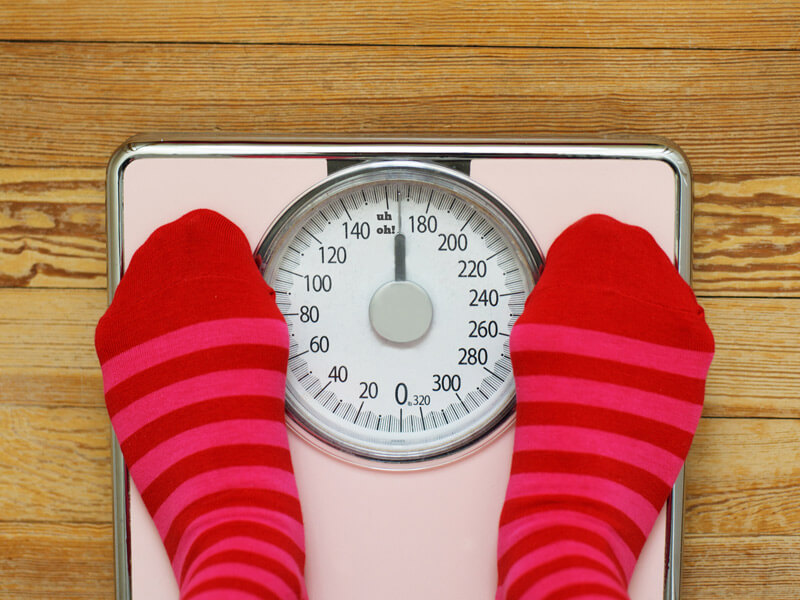Weight-loss plateau? 5 surprising reasons the scales won’t move
If your healthy diet is delivering some ho-hum weight-loss results, don’t panic. There could be a simple explanation – and an even easier fix.
Trying to shift a few kilograms by sticking to a healthy diet? Good choice.
Research shows that while increasing how much exercise you do contributes to weight loss, it’s changing what you eat that’s most effective.
But if you’re still not getting the results you’re after, there may be another reason.
1. You’re stressed
Not only does stress make us gravitate towards less-healthy foods, a 2019 study suggests it makes weight gain more likely, too, by altering pathways in the brain.
Then there’s the fact that around three out of four of us use “eating” as a stress-management strategy.
“And the problem with trying to seek comfort in food is that it can lead to feelings of guilt, which can lead to further emotional eating, and so the cycle continues,” dietitian Milly Smith says.
The fix: Do something active
A 2012 US study found moderated exercise helped people cope with anxiety and stress – an effect that lasted well beyond the workout.
And if you can exercise in a group, even better.
A 2017 US study found group exercisers experienced a 26 per cent reduction in perceived stress levels.
It’s thought exercise fights stress by triggering the release of “happy” hormones, chemicals and neurotransmitters, like dopamine, serotonin and endorphins.
Plus, research shows that exercise also encourages healthier food choices.
- By the clock: What’s the best time of day to exercise?

2. You’re eating dinner too late
New research indicates that, even when you’re eating a weight-loss friendly number of kilojoules, late-night meals put the brakes on, because the body burns and stores fat differently the closer it gets to bedtime.
The fix: Dine early
Try not to eat dinner later than 6pm and delay breakfast until 10am, so that you’re fasting for 16 hours overnight.
When people did that for a 2018 study, they lost 3 per cent of their body weight in a matter of weeks, partly because they cut their daily energy intake by 1400 kilojoules without even trying.
3. You’re eating more than you think
Even with the best of intentions, you might be overdoing it.
For example, combining lunchtime with screen time impacts your “food memory”, so you’ll eat 25 per cent more food than usual at dinner because your brain hasn’t accurately logged what you ate at midday.
Other things contribute too – research shows people eat bigger serves of foods that carry a health claim, such as ‘low fat’, without noticing.
The fix: Eat mindfully
Make sure you can hear yourself chew whenever you’re eating.
It’s a science-approved strategy that helps your subconscious log your food intake, which curbs your mid-meal appetite so that you’ll consume about 30 per cent less food.
- Lifestyle tweaks: 10 easy weight loss swaps

4. You’re not getting enough sleep
If you feel hungrier when you’re tired, you’re not imagining it – scientists have proved we do tend to eat more the day after a bad night’s sleep, thanks to the way a lack of shuteye affects hunger hormones.
But even if you don’t eat more, your weight loss could still be affected – according to a recent study, when you don’t get roughly the same amount of sleep night after night, you’ll lose less weight even if you’re sticking to a kilojoule-controlled diet.
The fix: Commit to heading to bed on time
Make sure you get at least seven hours of sleep every night.
- Well rested: What happened when I started prioritising sleep
5. You’re not eating enough protein
“Protein isn’t the body’s preferred energy source, so it takes longer to break down and keeps you feeling fuller for longer, which can help with appetite control,” Milly says.
“Eating enough protein is also one of the key things you can do to help maintain muscle mass.”
And that matters – muscle burns kilojoules for fuel, but it’s often one of the first things that gets shed, when you start to lose weight.
The fix: Include 25g of protein in every meal, including breakfast
This will help you to control hunger and boost muscle metabolism when you’re trying to lose weight.
“It’s not difficult to do with a bit of planning,” says Milly.
“Becoming familiar with protein-rich foods, and knowing which are a natural fit at breakfast, is a great place to start.”
While a large egg contains 5.5g of protein, half-a-cup of low-fat cottage cheese and a 200g tub of natural yoghurt both contain 12g. Smoked salmon is another breakfast-friendly protein-rich food – there’s 23g of protein in a 100g serve.
Written by Karen Fittall






